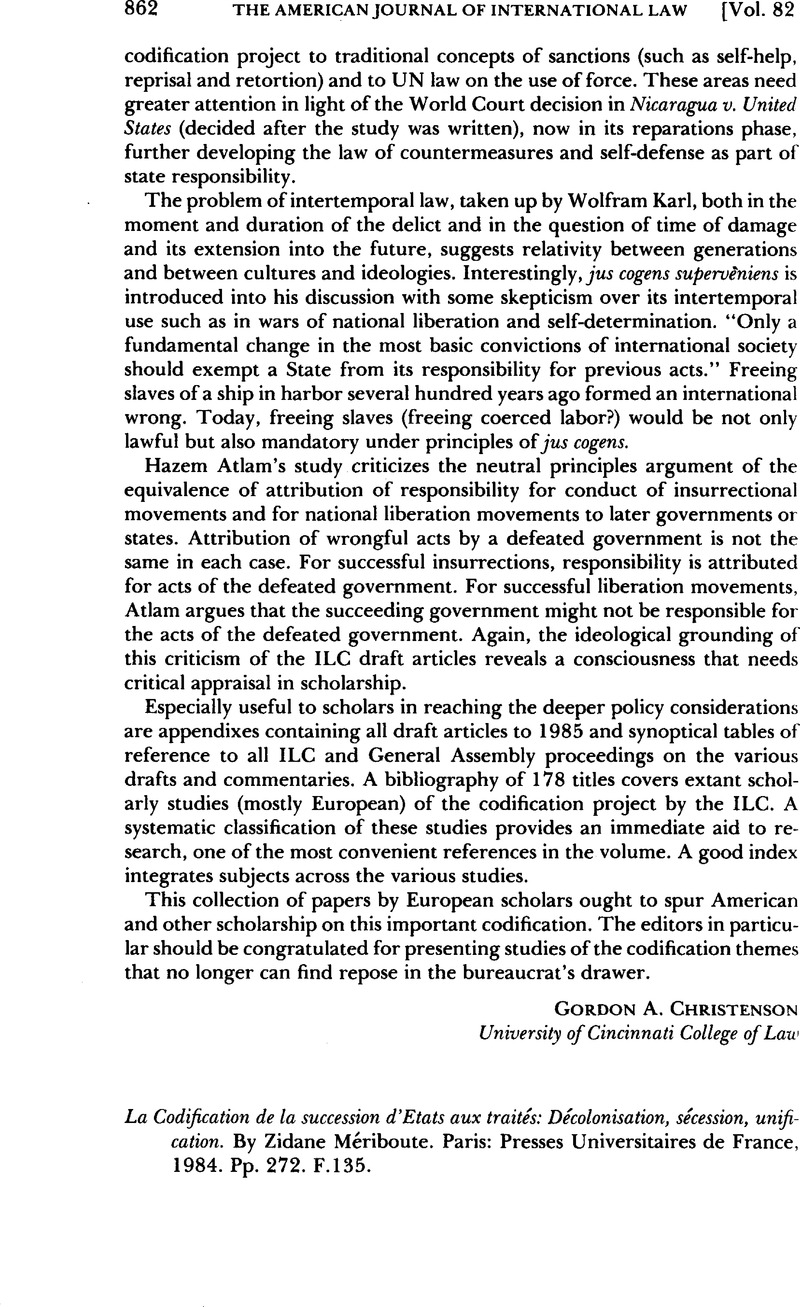No CrossRef data available.
Published online by Cambridge University Press: 27 February 2017

1 Vienna Convention on Succession of States in Respect of Treaties, UN Doc. A/CONF.80/31 and Corr.l (1978).
2 “[O]n peut ajouter le fait que la partie de la Convention concernant les Etats nouvellement indépendants est inutile à l’heure actuelle, puisque la plupart des pays sont décolonisés” (p. 218).
3 Continental scholars would do well to remember that a detailed work of scholarship is only as good as its index, and that the lack of one will necessitate more work on the part of the reader than is saved on the part of the author and his editor.
4 Indeed, one cavil with the author’s style is that too much is given to footnotes. This reviewer is pluperfectly allergic to end notes, and is therefore grateful for the author’s use of notes at the foot of each page, but, nevertheless, in many instances, one can spot interesting matter submerged in the footnotes, as well as the secondary reference, that could probably have been embodied in the text.
5 This contrasts quite sharply with another recent book on state succession by an Ethiopian scholar on a particular aspect of state succession and the “East African solutions”: Yilma Makonnen’s book on International Law and the New States of Africa (1983): which see at 364, 373–74, 406 and review (by this reviewer) at 80 AJIL 242, 245 and 245 n.8 (1986).
6 It is, however, regrettable that the publisher was not able to have the book properly proofread. Although its format is very polished, it contains a large number of typographical errors that distract even an English-speaking reader and that could have been easily avoided without too much more effort: the spelling, for example, of Professor D. P. O’Connell’s name is given in at least two variants, an error that, in the matter of state succession scholarship, is inexcusable. This, like the lack of an index, is sheer inefficiency; one wishes that such an excellent study will, in a future edition, receive more careful polishing.